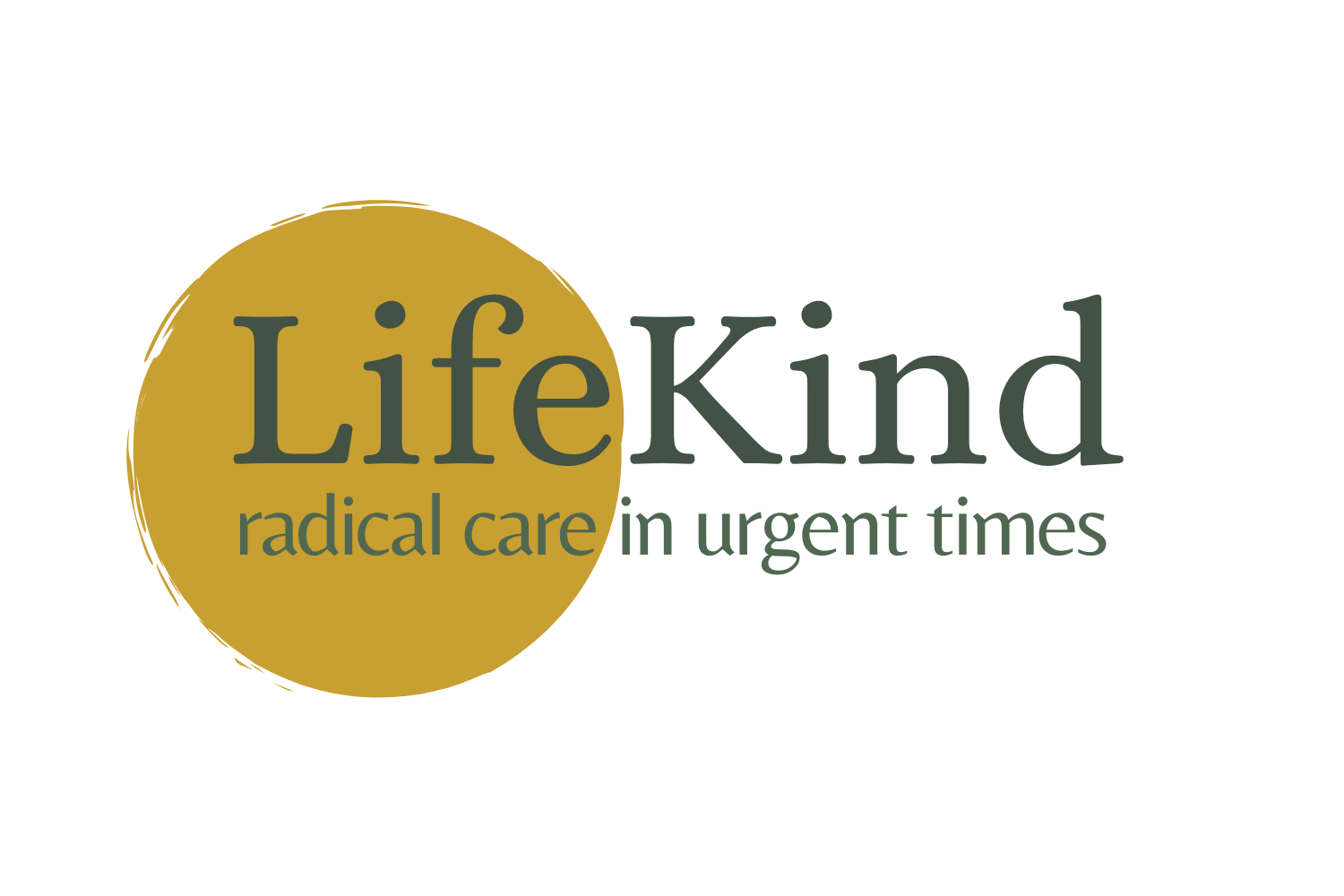Our vision for a better more compassionate world

Ten Steps to Culture Change in a Generation
-
1. Understand what humans really need to thrive.
Indigenous wisdom and current neuroscience are clear that humans need warm relationships, community belonging and connection to the earth. Culture is passed on or changed through child-rearing practices. We have enough knowledge to take radical action to change the systems that are destroying the planet.
When our early attachment and connection needs are not met in early childhood we are not able to function as fully human. Trauma and stress cause ongoing suffering.
We have built systems that humans cannot thrive in. We are in survival mode, we have models of scarcity, competition, punishment, economy, necessary inequality.
We need to relearn the vital importance of our need for warm connection and how to change our systems towards life. This starts in early childhood and is lifelong.
-
2. Imagine a world where those needs are met.
We can only change what we can imagine. What would it look like to live in a world where all life is precious, where there is equality and nurturing for all and the systems that we build prioritise connection over profit? How would it be if every child had parents who were supported enough to give them the care they are born to need and that will enable them to thrive?
Having a strong vision of what we want helps make the journey clear and hopeful.
-
3. Step up and support a more child centered society.
Child rearing creates culture. The decisions and actions that adults take are all directly related to their childhood experiences. When children grow up knowing themselves to be safe and loved they become adults who are able to think and care about all life and impact their families their societies the their environment from that knowing. If we changed how we bring up children we could change the whole world in one generation.
-
4. See the global picture.
Everything is connected. If we act with care and awareness of every child around the world then we will know what to do. Right now there is such inequality that we are all facing grave danger. Recognising that climate change is already destroying many lives that we don’t often see helps make clear the urgency to act. Millions of people are already suffering the full catastrophic effects of climate change. Their plight needs to be seen and acknowledged as if it were happening to our own family.
-
5. Recognise yourself as part of nature.
We are animals on the earth, with biological needs for food, water and air. Forgetting this enables us to use the earth as we do, merely as a resource to be plundered or a dump for our rubbish. We are stronger when we remember our interdependence with nature, and we are more able to protect ourselves and the planet that sustains us.
-
6. Be the change you want to see.
We all make a contribution to the whole picture. We each have a chance to embody the values of the world we want to live in. We are all needed in this deep crisis. What change are you called to participate in? What do you love? What are you good at? This is your gift to the world.
-
7. Learn how to regulate your own and others stress.
The ability to regulate our stress response is the key to healthy resilience and choice over our actions. It is the heart of strong relationships and community. It is the strongest predictor of health. This knowledge is life changing and world changing. When we tend to our own nervous system it’s a radical act of earth protection. There is much research to support us in this learning and it is difficult work that requires endless compassion for self and other.
-
8. Build a resilient community.
There is no such thing as a separate human being. We need each other to survive and to thrive. Change will only happen when we do it together. We have grown up in systems of separation so it will not come easily. There is loads of research about how to build strong communities. A fiercely compassionate approach is key.
Seek good company, others who hold you in warmth and belonging, and work together on creating change.
-
9. Recognise the need for system change.
We are part of an inherited, complex web of systems that create the patterns in the world. Unequal power and economic structures, the colonisation of indigenous cultures, mean that individual action is simply not powerful enough now. We need widespread system change. What is your most effective way of contributing to that?
-
10. Take radical action.
There is so much that needs to change in order for life to continue and thrive on the earth and the responsibility can feel overwhelming. Every individual has the power to effect a change no matter how seemingly small. What are you called to do? Radical action is about choosing relationship over economy, connection and compassion over productivity and creating a different way of life than ‘business as usual’. How can you bring your vision to life? Radical action includes relationship based parenting and education, this will change our cultures towards new life supporting systems and will change the world.

“We can come home again……and participate in our world in a richer, more responsible and poignantly beautiful way than before.”
Joanna Macy
Manifesto for resilient parenting in the face of climate change.
-
1. Practice radical compassion.
This path is not easy, you are flying in the face of your own conditioning and an entire system and culture built on other values. Be gentle and kind with yourself first.
-
2. Connection comes first, to your child, yourself and nature.
Humans have evolved in relationship with each other and the natural world. We need warm responsiveness from our parents to enable our brains and bodies to grow to our healthy potential. We are part of nature and need to know our belonging to each other and to the earth.
-
3. Learn and practice ways of dealing with stress and trauma/triggers.
This is the foundation of resilience. Stress takes away choice and stops us being available for our children. There is loads of research on trauma that gives us strong tools for healing. Daily stress regulation practices will build resilience for your child, family and community.
-
4. Listen! To yourself and to your child.
When you give your undivided attention to your child and really listen to them, they feel safe to share their feelings and experience with you. This is the heart of connection, this is what lets your child know that they belong. The child inside you needs your same attention and care.
-
5. Recognise and welcome your child’s feelings with warmth, all of them!
Empathy is a superpower. When you can really welcome and accept your child’s feelings without needing to fix or deny them, you are creating the environment for physical, mental, emotional and social health. This is hard to do when it’s not common in our culture and ost of us didn’t have it ourselves as children so needs endless compassion.
-
6. Recognise behaviour as communication of needs.
The way we behave is a direct view into what’s going on inside. There is always a good reason for every behaviour, whether we can see it or not. ‘Challenging’ behaviour is a sign of distress or unmet needs not, as our culture might suggest, a way of controlling or manipulating. It is an invitation to get curious about what is going on and offer support.
-
7. Commit to no shaming, punishment and reward.
Our culture of behaviour management has created separation and misery. The stress it causes lasts a lifetime and makes healthy relationships impossible. It is so normal in our culture it is almost invisible. Stepping away from it allows you to build the relationships your children need.
-
8. Be clear with expectations and boundaries.
Be clear about what is needed for everyone to feel safe. Respond with calm and friendly strength when your child isn’t able to manage their actions. Knowing that appropriate boundaries held with love and compassion create the environment for emotional resilience and self control. Children learn how to follow customs and rules through modelling from people older than them.
-
9. Stand up for and advocate for your child.
Your job is to be thoroughly on their side, helping them navigate the challenges of the world around them. Let your child know that you always have their back especially when things are difficult. Choose your child over your own fear of the judgement of others.
-
10. Grow a support network for yourself.
You need to be surrounded by people who can really see, hear and value you. When you are loved and cherished you can offer this to your child. We simply can’t do this on our own. We need other people to support us.
-
11. Surround yourself with other parents on the same path.
Solidarity with others who are facing the impact of climate change and share your core values is essential. These are the families to build resilient community with, to provide the tribe you need to support your parenting.
-
12. Educate yourself about the challenges. you face
It is hard to face, but it is important to be informed about what is happening with climate and the threat to nature. Be discerning about your information sources. Learn about positive projects and action too. This will empower you to answer your children’s questions and know how to take action.
-
LUCKY 13. Remember radical compassion.
Parenting is radical activism - remember you are changing the world! This is not easy, you are flying in the face of your own conditioning and an entire system and culture built on other values. Be gentle and kind with yourself first.

